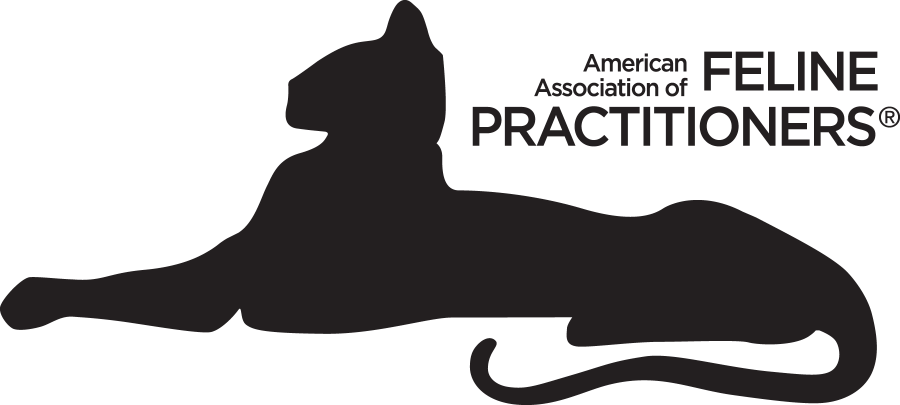What to Do in Case of a Pet Emergency
The key to handling a pet emergency is to know the proper actions to take prior to it happening. The number one thing to do if you feel your pet has an emergency is to get them to a veterinarian immediately. Become aware of your veterinarian's office hours and the locations of local emergency centers. Although a phone call to let the E.C. know you are on the way is not required, it is certainly recommended to call the animal hospital that you are taking your pet to when you are on the way if possible, so they can be prepared to care for you and your pet as soon as you walk through the door. The intention of the information below is only to assist you in stabilizing your pet to transport them to a professional for treatment and not for any other purpose.

Pet First Aid Kits
Having a few items in portable carrying case is always helpful, so you are not rushing around to find what you need. The following are a few things that you should keep on hand:
1. Tweezers
2. Sterile saline (contact solution)
3. Roll gauze and gauze sponge
4. Adhesive tape
5. Antibiotic ointment
6. Nylon leash
7. Latex gloves
8. Diphenhydramine
**Notice that there is only one medication listed above. DO NOT give your pets any medication (Motrin, Tylenol, aspirin, etc.) unless specifically told to do so by a doctor.
9. Have a proper fitting muzzle handy also. If your pet is in extreme pain, apply the muzzle before attempting to move or treat your pet. Even the sweetest, calmest pet may bite without thinking when in pain.
Abdominal Pain: lethargic, arching back, unable to get comfortable, vomiting, diarrhea, bloated or distended abdomen - Abdominal pain can be life threatening. Pick up and carry your pet if you can (avoiding any pressure on the abdomen). DO NOT feed
or water your pet as that could worsen the condition.
Allergic Reactions: fever, vomiting, hives, scratching, swollen face, puffy eyes, trouble breathing - Call your veterinarian immediately!!! They may advise you to medicate your pet so the drug can begin working while you are on the way to the clinic. It is imperative to get your pet in as soon as possible to help prevent
shock.
Lacerations/Bite Wounds:
Approach the pet slowly because some pets that would not normally be may become aggressive when in pain. If there is a very large wound, it may be wrapped with a clean dressing. It is ok to apply firm pressure to slow down bleeding if need be, but DO NOT use a tourniquet. If the wounds are dirty, it is ok to rinse off the wounds with saline or water, but do not try and scrub them up. Seek veterinary care ASAP. The Dr may need to close the wounds, apply a drain or send the pet home on antibiotics to prevent infection.
Wounds that are managed within the first 6 hours typically require a less aggressive treatment.
Eye Emergencies: Squinting, discharge, tearing, redness, swelling, bleeding, different pupil size. If there is a laceration or a foreign object in the eye, DO NOT bandage it or try to remove it. If a chemical or dirt has gotten into the eye, it is ok to flush it out with saline. Eye problems can escalate very quickly. If you think your pet has an eye problem, do not take it lightly. Get your pet into the vet as soon as possible.
Fractures: Pain, not using a limb, limb looks bent or swollen. DO NOT move the limb. If the limb is bleeding or you can see bone, it is ok to wrap it in a clean towel, but try to avoid applying pressure as it is
easy to impede blood circulation.
Heat Emergencies and Dehydration: Excessive panting or drooling, lethargic, unable to stand or walk straight, vomiting, diarrhea. DO NOT try to get your pet to stop panting!! This is your pet's way of cooling off. Bring the pet into a cool place and apply water or ice to the tongue. Apply alcohol soaked pads to the bottom of your pet's feet. Get your pet to the vet as soon as possible as dehydration can lead to other serious medical conditions.
Poisonings: Disorientation, vomiting, seizures, lethargic, salivating. Go directly to the vet. If you know what your pet ate, bring the packaging with you. It is always a good idea to call a poison control hotline as well. There are many different toxins out there, so calling them and having a reference number ready for the veterinarian will help tremendously. Treatment for toxicity is imperative to begin as soon as possible to reduce the amount absorbed by the body.
Respiratory Emergencies: Collapse, weakness, blue/gray gum color, abnormal breathing - Take your pet directly to the nearest clinic.
Seizures: Shaking, tremors, unable to stand, loss of bowl or urinary control. DO NOT restrain your pet during a seizure. Move anything around your pet so they can not hurt themselves. Try and make a note of how long the seizure lasts, if the pet went out into a rigid body position, and if the pet lost control of its urinary or bowls. Try and get to the vet as soon as possible.
Cardiac Emergencies: collapse, weakness, blue/gray gum color, increased or decreased respiratory rate, respiratory distress. Go to the nearest clinic ASAP!!
Performing CPR
DO NOT assume that there is no heartbeat or pulse simply because an animal is not breathing. Do not start chest compressions before checking for a heartbeat. If the animal is conscious and responds to you, then the heart is beating.
Small Dog (< 30lbs) or Cat:
Lay your pet down on its right side with the chest facing you. Kneel and place the palm of one of your hands over the ribs at the point where the elbow touches the chest. Place your other hand underneath the right side. With your elbows softly locked, compress the chest 1/2 to 1 inch. If working alone, perform five chest compressions for each breath for five rotations and then check for a pulse. If there are two people, have one perform the compressions at a rate of three compressions for each breath, then check for a pulse.
Medium to Large Dog (30-90lbs):
Stand or kneel with the animal's chest towards you. Extend your arms at the elbows and cup your hands. At the point where the left elbow lies when pulled back to the chest, compress the chest about 1-3 inches. If working alone, perform five chest compressions for each breath for five rotations and then check for a pulse. If there are two people, heave one perform the compressions at a rate of two or three compressions for each breath, and then check for a pulse.
Giant Dogs (90+ lbs):
Use the technique for medium to large dogs, but do ten compressions for each breath, and then check for a pulse.
POISON CONTROL:
Georgetown Poison Control
202-625-3333
Free
Animal Poison Control (ASPCA)
1-888-426-4435
$50 Fee (includes free follow-up calls)
Pet Poison
1-800-213-6680
$35 Fee
National Animal Control Poison Center
1-800-548-2423
$55 Fee
One last thing that is good to have ready is a plan in case you need to evacuate your home due to inclement weather. Have a list of supplies you may need for the pet in case you are gone for up to four weeks. A few suggestions are the following:
1. Bottled Water
2. Food
3. Leash
4. Crate
5. Heart worm medication, flea control and any other medication your pet is on.
6. A list of pet friendly-hotels near by.




